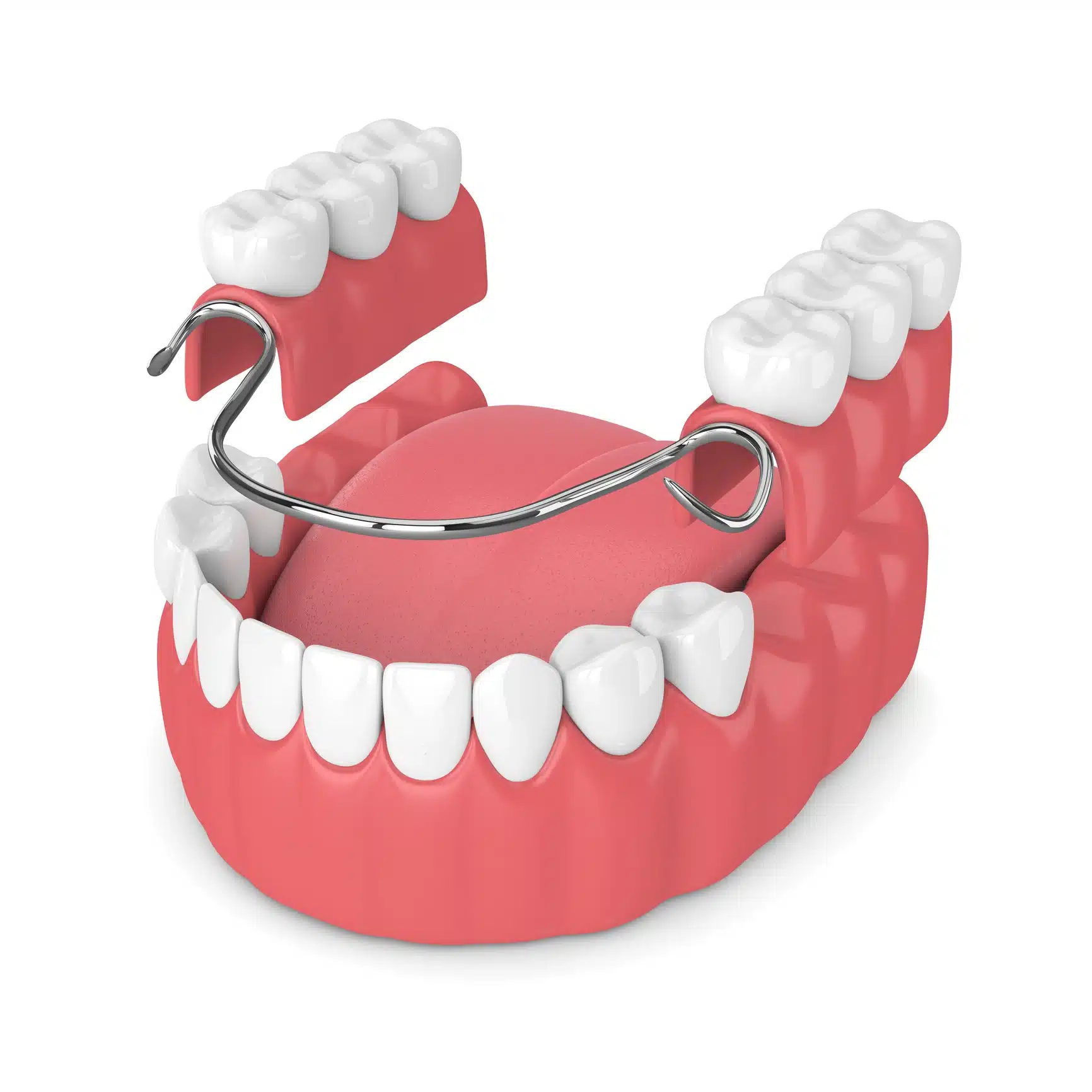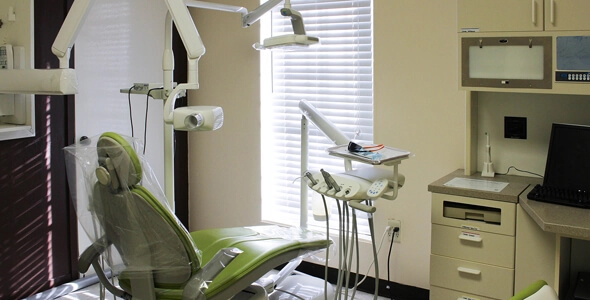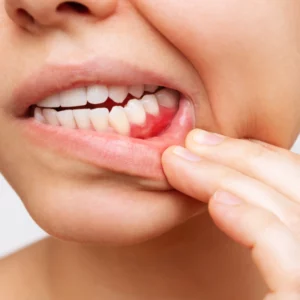One of the most common dental issues faced by our patients at A Dental Care is missing teeth. This issue can be the result of a variety of issues and can lead to a lot of oral and overall health concerns. The good news is, there are plenty of replacement options.
Dentures are one of the most common solutions for patients with missing teeth, as they improve appearance and functionality. However, one of the biggest issues is that they may loosen or fall out, which can lead to discomfort and embarrassment.
In this article, we’ll explain more about the common causes of dentures falling out, as well as how to prevent it from happening and available alternatives.
Top Reasons for Dentures Falling Out
Traditional dentures are designed to be removable. While this does help with affordability, it increases the risk that they will fall out at the most inopportune time. There are several reasons why dentures may become loose or fall out, including:
Bone Resorption
Bone resorption is a process in which the jawbone decreases in size and density over time due to the lack of stimulation from the tooth roots. These changes result in poor denture stability and retention.
Improper Fit
Dentures are not a one-size-fits-all or even a one-size-fits-most solution. They are a customized solution. They must be tailored to fit the unique shape of your jawbone. An improper fit leads to instability, which can lead to them falling out.
Worn-out Lining
Dentures are made with a soft lining to make them more comfortable. Unfortunately, this lining will wear out and deteriorate over time, which makes it easier for them to slip and slide around in the mouth and ultimately fall out. This can be mitigated with regular dental check-ups.
Damaged Dentures
There are several different ways that dentures can become damaged including accidents, daily wear-and-tear, improper care/maintenance, and more. This damage can reduce the stability of the dentures increasing the risk that they will fall out.
How to Keep Dentures in Place
While slipping and sliding are a common issue with traditional dentures, there are some things you can do to keep them in place, including:
Use a Denture Adhesive
Denture adhesives create a cushion-like barrier between the denture and the gums, which minimizes movement and improves grip. There are several options on the market including creams, powders, and strips.
Keep your Dentures Clean
Bacteria and plaque buildup on the dentures and gums can cause them to lose their grip and increase the risk of them falling out. Cleaning your dentures and mouth can reduce this risk.
Take Note of What You Eat and How You Speak
When wearing dentures, it’s important to pay attention to how you eat and speak. You should avoid eating foods that are hard, sticky, or tough, and make sure to take smaller bites. When speaking, take your time and speak clearly and deliberately.
Don’t Sleep with Dentures
While it’s okay to take a cat nap with your dentures in, removable dentures are designed to be removed before going to sleep. This allows your gums and jawbone to rest and improves oral health. Dentures should be stored in a denture cleansing solution overnight to protect and clean them.
Best Alternatives to Traditional Dentures
For many years, traditional dentures have been the most popular option for replacing missing teeth. However, thanks to research and advancements in dental technology, a few alternatives have been brought forth that offer increased stability and durability, as well as a more natural look and feel. These alternatives include:
Dental Implants
The American Dental Association has labeled dental implants as the gold standard because they look, feel, and function the most like natural teeth. Dental implants consist of an implant rod/screw, which is inserted into the gum and jawbone. This rod/screw acts as a tooth root, anchoring the prosthetic tooth in place. The prosthetic tooth, or crown, is secured to the rod/screw with a piece known as the abutment. Multiple dental implants can be used to support up to an entire arch of missing teeth. Dental implants can be treated just like natural teeth.
The primary disadvantage is the cost- an average of $5,000 per implant.
Overdentures
Overdentures, also referred to as implant-supported dentures, combine the convenience of removable dentures with the stability of dental implants. While there is no fear of them falling out, they still must be removed at night so that they can be cleaned, and the gums can rest.
Another option is implant-retained dentures, which is a similar concept as implant-supported dentures, only they are fixed in place. Implant-retained dentures can be treated just like natural teeth.
Implant dentures range in cost from $6,000 to $8,000 per arch.
Dental Bridges
A dental bridge is a dental prosthetic consisting of two dental crowns with one or more artificial teeth between them. Typically, the crowns are placed on adjacent natural teeth, but may also be placed on dental implants placed on each side of the gap. However, it is important to note that if they are placed on natural teeth, some enamel will need to be removed to create space for the implants to sit. Since they are fixed in place, they can be cared for just like natural teeth.
The average cost of dental bridges ranges from around $1,500 to $16,000 based on several factors including the type of bridge, the number of teeth, and more.
Ultimately, the choice is yours but the team at A Dental Care will work with you to help you determine the best option for your personal needs, budget, and expectations. Be sure to schedule your visit today to learn more about your options.
FAQs
Can dentures fall out while eating?
Yes, it is possible for dentures to fall out while eating. This is typically due to poor fit, damage from eating hard/sticky foods, and everyday wear and tear. The best way to ensure that your dentures are in good shape and fit properly is with regular dental checkups. If you are having problems with denture stability, you may want to schedule a visit as soon as possible.
How do you keep dentures in place while eating?
The best way to keep dentures from falling out while eating is to avoid foods that are hard or sticky. You should also take smaller bites and chew slowly. Another option is to use a good denture adhesive- which may require some trial and error to decide which one works best for you.
Can I go a day without wearing my dentures?
Dentures should be removed prior to sleeping to allow your mouth to rest. However, it is not advisable to go a full 24 hours or more without wearing dentures. If you don’t wear them as directed, you can increase the risk of them no longer fitting.












